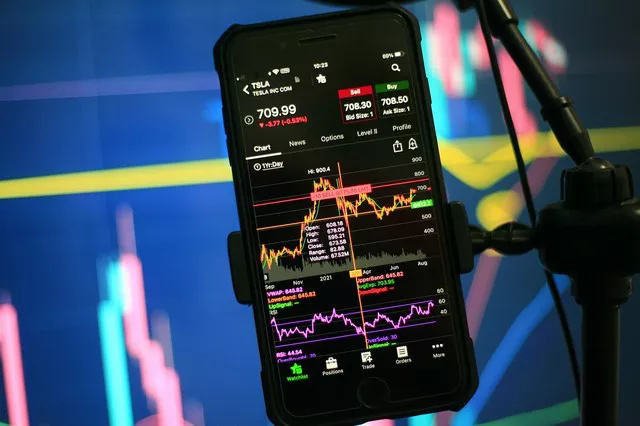In today’s fast-paced financial markets, micro futures have emerged as an attractive investment option for traders and investors. These derivative contracts offer smaller contract sizes and increased accessibility, allowing individuals with limited capital to participate in the futures market. With their reduced contract sizes, micro futures provide an avenue for market participants to diversify their portfolios and capitalize on various asset classes. In this comprehensive guide, we will explore the world of micro futures, highlighting the different available options across asset classes and discussing their advantages for traders. By the end of this article, readers will have a comprehensive understanding of the various types of micro futures and their potential benefits.
Understanding Micro Futures
Micro futures are derivative contracts that allow traders to engage in futures trading with smaller contract sizes compared to standard futures contracts. These contracts have gained popularity due to their accessibility and affordability, democratizing the futures market and opening it up to a wider range of investors. Key features of micro futures include:
Smaller Contract Sizes: Micro futures contracts are designed to be a fraction of the size of standard futures contracts. This reduction in contract size enables traders with limited capital to participate in the futures market and take advantage of price movements in various asset classes.
Similar Trading Mechanisms: Micro futures operate on the same fundamental principles as standard futures contracts. Traders can speculate on the price movements of the underlying assets, hedge against risks, and employ various trading strategies. The trading mechanisms, including order types and margin requirements, are similar to those of standard futures contracts.
Asset Classes and Micro Futures
Micro futures are available across different asset classes, providing traders with opportunities to diversify their portfolios and participate in various market sectors. Let’s explore some of the key asset classes and the micro futures contracts associated with them:
Equity Indices:
Micro E-mini Futures: These micro futures contracts track major equity indices such as the S&P 500, Nasdaq-100, Dow Jones Industrial Average, and Russell 2000. The advantages of trading micro E-mini futures include:
Lower Capital Requirements: Micro E-mini futures allow traders to participate in the performance of broad market indices with smaller contract sizes, requiring less initial capital.
Portfolio Diversification: By trading micro E-mini futures on different indices, traders can diversify their portfolios and gain exposure to various sectors and market trends.
Commodities:
Micro Crude Oil Futures:
These contracts provide traders with exposure to the price movements of crude oil. Key advantages of micro crude oil futures include:
Accessible Market Participation: Micro crude oil futures enable traders to participate in the energy market and capitalize on price fluctuations in crude oil without the need for a substantial capital investment.
Risk Management: Micro crude oil futures serve as a valuable tool for hedging against the volatility and risks associated with the energy market.
Micro Gold Futures:
These contracts allow traders to speculate on the price movements of gold. Key advantages of micro gold futures include:
Safe-Haven Investment: Gold is often seen as a safe-haven asset during times of market volatility. Micro gold futures provide traders with an accessible avenue to hedge against market uncertainties.
Portfolio Diversification: By including gold in their portfolios, traders can diversify their holdings and potentially mitigate risks associated with other asset classes.
Currencies:
Micro Currency Futures: These contracts allow traders to participate in the foreign exchange market with smaller contract sizes. Key advantages of micro currency futures include:
Increased Accessibility: Micro currency futures enable retail traders to engage in currency trading without the need for significant capital. This provides an opportunity to diversify their trading strategies and capitalize on global economic trends.
Portfolio Hedging: Micro currency futures offer a means for traders to hedge against currency risks and fluctuations in exchange rates, particularly for businesses engaged in international trade.
Interest Rates:
Micro Treasury Futures: These contracts provide exposure to U.S. Treasury bonds and notes. Key advantages of micro Treasury futures include:
Risk Mitigation: Micro Treasury futures serve as a tool for hedging against interest rate risk. Traders can take positions based on their expectations of interest rate movements and adjust their portfolios accordingly.
Portfolio Diversification: By including Treasury futures in their portfolios, traders can diversify their holdings and potentially offset risks associated with other investments.
Conclusion
Micro futures have revolutionized the trading landscape, offering traders and investors an accessible and affordable entry point into the futures market. By providing smaller contract sizes across various asset classes, micro futures enable individuals with limited capital to participate in diverse markets and diversify their portfolios. Whether trading equity indices, commodities, currencies, or interest rates, micro futures provide opportunities for traders to capitalize on market trends and manage risks. Understanding the different types of micro futures available and their advantages empowers traders to make informed decisions and potentially enhance their trading strategies.


